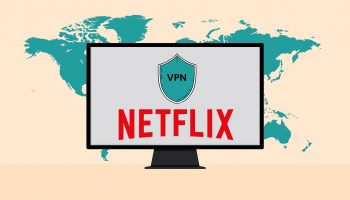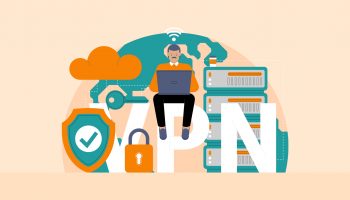In an era where digital privacy and security are paramount, Virtual Private Networks (VPNs) have become essential tools for internet users globally. With their promise of anonymity and data protection, VPNs allow users to navigate the digital world with increased security. However, amidst the plethora of VPN options available, many often find free VPN services a tempting choice. But is this choice truly without cost?
As BitStream VPN, a provider dedicated to safeguarding your online privacy and security, we understand the appeal of free VPN services. However, users must be informed about these services’ potential risks and downsides. This comprehensive blog will explore why free VPNs should be avoided, offering insights particularly relevant to discerning VPN users like you.
Security Risks Associated with Free VPNs
Here are some of the biggest security risks associated with free VPN services:
Weak or Non-Existent Encryption
One of the primary functions of a VPN is to encrypt your internet traffic, ensuring that your online activities are hidden from prying eyes. Unfortunately, many free VPNs fall short in this regard. Unlike premium services like BitStream VPN, which employ robust encryption protocols, free VPNs often use weaker or outdated encryption, making your data more susceptible to cyber threats. This lack of strong encryption compromises the very purpose of using a VPN – securing your digital footprint.
Data Logging and Selling
The adage “If you’re not paying for the product, you are the product” rings especially true for free VPNs. Several free VPN providers resort to logging and selling user data to monetize their services. This practice violates user privacy and exposes users to targeted advertising and potential data misuse. By contrast, paid VPNs typically have strict no-logs policies, ensuring your data remains private and untraceable.
Malware Risks
The dangers of free VPNs extend beyond privacy violations. Some free VPNs have been found to contain malware, posing significant risks to users’ devices and personal information. These malicious software can lead to data loss, identity theft, and other cybersecurity issues. Users often download these free VPNs without realizing the potential harm they contain, lured by the promise of a ‘free’ service.
Compromised Privacy and Data Protection
However, this fundamental aspect is often jeopardized when it comes to free VPN services. While these services promise privacy and security, the reality can be starkly different. The business model of free VPNs frequently necessitates the compromise of user privacy, leading to a range of issues that can have far-reaching consequences. This section delves into the critical reasons why free VPNs, contrary to their claims, can significantly undermine your privacy and data protection. By understanding these pitfalls, users can make more informed decisions about their online security strategies.
Tracking and Selling of User Browsing Data
Free VPNs often have business models that are fundamentally at odds with the concept of privacy. Many tracks and sell user browsing data to third parties, including advertisers. This practice not only infringes on your privacy but also negates the purpose of using a VPN. Instead of remaining anonymous, your online activities become commodities sold to the highest bidder. In stark contrast, a paid service like BitStream VPN respects user privacy by adhering to strict no-logging policies.
Data Leaks and Breaches
Free VPN services are notorious for their vulnerability to data leaks and breaches. Due to inadequate security measures, they are often easy targets for hackers looking to exploit user data. These breaches can expose sensitive personal information, such as login credentials, financial information, and private communications. Opting for a more secure, paid VPN service minimizes these risks, safeguarding your personal information from unauthorized access.
Privacy Policies of Free vs. Paid VPNs
The privacy policies of free VPNs often contain ambiguous or misleading language regarding data handling. These policies may obscure the fact that user data is being collected and sold. On the other hand, reputable paid VPNs like BitStream VPN offer clear, transparent privacy policies, emphasizing their commitment to user privacy and data protection.
Limited Functionality and Performance Issues
Regarding the performance and functionality of VPN services, not all are created equal. This disparity becomes apparent with free VPNs, which often suffer from various limitations and performance issues. These constraints affect the efficiency of your online activities and can lead to a frustrating user experience. Whether it’s restricted bandwidth, slow connection speeds, or server unavailability, the limitations inherent in free VPNs can significantly hinder their practicality.
Bandwidth Limitations
Free VPNs typically come with significant bandwidth limitations. Users often experience restricted data usage, leading to a compromised browsing experience. Whether streaming, downloading, or just regular browsing, these limitations can be a major hindrance. Paid VPNs, in contrast, offer unlimited bandwidth, ensuring a seamless internet experience.
Slower Internet Speeds and Server Availability
Due to overcrowded servers and limited infrastructure, free VPNs often result in slower internet speeds. This slowdown can be particularly frustrating for users requiring fast and reliable streaming, gaming, or work connections. Furthermore, the limited number of servers on free VPNs can mean less global coverage and connectivity issues. In contrast, a premium VPN service offers a vast network of servers, ensuring high-speed connections and a wide range of geographical locations.
Ad Interruptions
An additional drawback of free VPNs is the frequent ad interruptions. These services often rely on advertising as a revenue stream, leading to disruptive and often invasive advertising for users. This affects the user experience and can pose privacy concerns through ad tracking. Paid VPNs like BitStream VPN provide an ad-free experience, focusing solely on quality service delivery.
Ethical and Legal Considerations
The decision to use a VPN service extends beyond mere functionality and performance and involves important ethical and legal considerations. While the allure of free VPN services is undeniable, it’s crucial to understand the broader implications of choosing such a service. Ethical dilemmas arise from how these free services operate and handle user data, often straying into morally grey areas. Free VPNs can sometimes place users in precarious situations, given their ambiguous policies and compliance with global internet laws.
Ethical Implications of Using Free VPNs
When it comes to free VPN services, ethical considerations are often overlooked. Individuals may inadvertently support unethical business practices by using a service that potentially exploits user data for profit. These practices include selling personal data to third parties and compromising user security. In contrast, ethical VPN providers like BitStream VPN prioritize user privacy and security, reflecting a commitment to ethical standards in their business operations.
Legal Risks Associated with Free VPNs
The use of free VPNs can also entail legal risks. Some free VPNs engage in questionable practices, such as hosting servers in countries with lax privacy laws or allowing illegal activities through their networks. This could potentially implicate users in legal issues, even if unintentionally. Moreover, in some regions, the use of VPNs is heavily regulated or even prohibited, and using a less reputable VPN service could attract unwanted legal attention.
The False Economy of Free VPNs
At first glance, free VPNs appear to be a cost-effective solution for users looking to enhance their online privacy and security without financial commitment. However, this perception is often a misleading representation of reality, leading to what can be described as a ‘false economy.’ The term ‘false economy’ refers to a decision that seems to save money initially but, over time, results in more expenditure or losses. In the context of free VPNs, the initial savings are overshadowed by these services’ potential risks and indirect costs. From compromised security to breaches in privacy, the hidden costs of free VPNs can have significant long-term implications for users.
Long-Term Costs of Using Free VPNs
The immediate ‘cost-saving’ appeal of free VPNs often masks the long-term risks and associated costs. These include potential data breaches, privacy violations, and even identity theft, which can have serious financial and personal repercussions. The costs of resolving these issues can far exceed the price of a subscription to a reliable VPN service.
Investing in Reliable VPN Services
Investing in a reputable VPN service like BitStream VPN is a more cost-effective and secure option in the long run. Such services offer robust security features, reliable customer support, and a commitment to user privacy. This investment ensures peace of mind and provides a high-quality, uninterrupted online experience.
Making the Right Choice – BitStream VPN
In a digital landscape with various VPN options, making the right choice for your online privacy and security is crucial. This decision is more than just selecting a VPN; it’s about choosing a partner in your digital journey that steadfastly guards your data and ensures your online freedom.
Features and Benefits of BitStream VPN Over Free Alternatives
BitStream VPN stands out from free alternatives with its advanced security features, such as military-grade encryption, a strict no-logs policy, and a secure server network. Additionally, BitStream VPN offers high-speed connections, global server coverage, and user-friendly apps for various devices.
Commitment to Privacy and Security
Our commitment to privacy and security is at the core of our service. We believe online privacy is a fundamental right and strive to offer our users the most secure internet experience possible. Our policies and practices are transparent and user-focused, ensuring that your data always remains private and secure.
Conclusion
In conclusion, while free VPNs may seem appealing at first glance, their risks and downsides significantly outweigh their initial allure. From compromised security and privacy to legal and ethical concerns, the hidden costs of free VPNs are too great to ignore. By choosing a reliable and trustworthy VPN service like BitStream VPN, users can ensure their online safety and enjoy a superior browsing experience.
We invite our readers to consider the long-term benefits of investing in their online security and privacy. Try BitStream VPN today and experience the difference of a premium VPN service.




